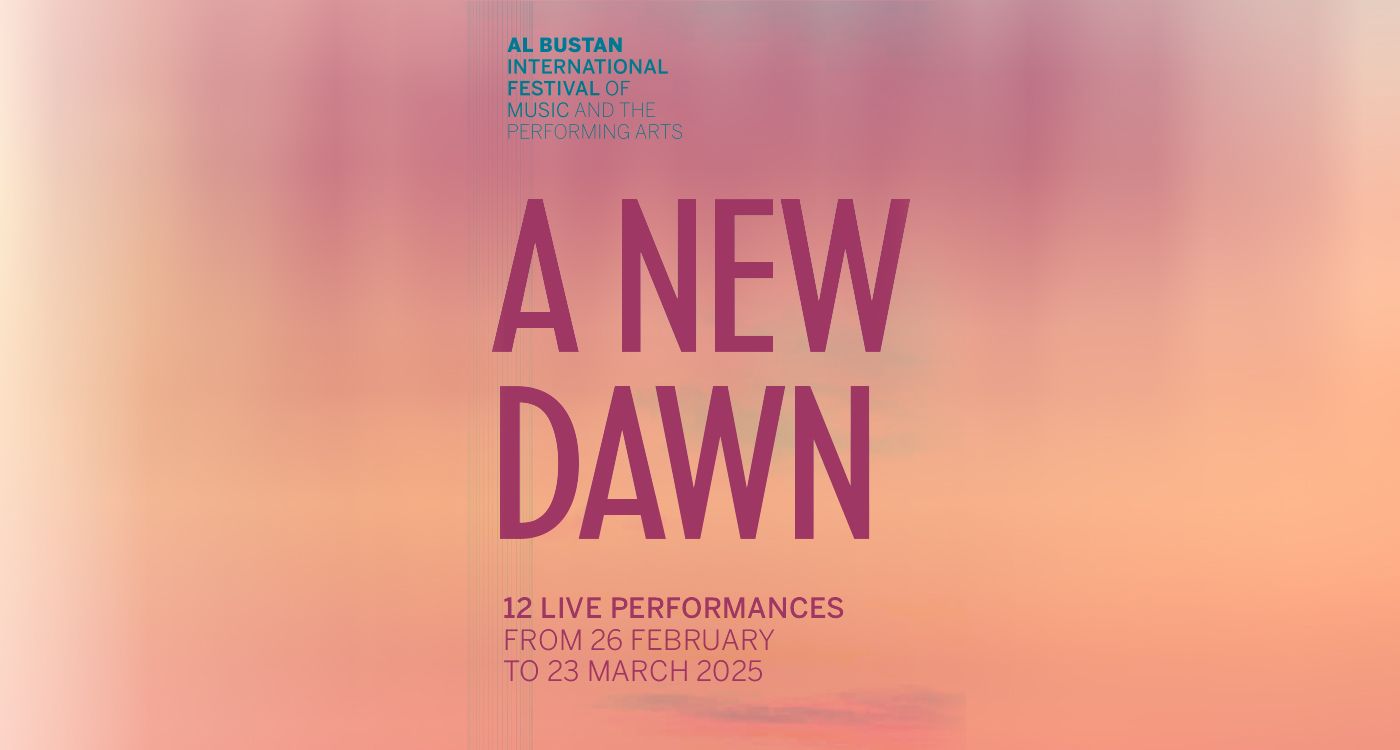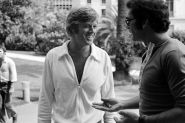
The 2025 al-Bustan Festival will run from February 26 to March 23. Despite Lebanon's recent hardships, the festival continues to thrive, celebrating both global and Lebanese cultures. This season focuses on themes of renewal and rebirth, offering a powerful message of cultural survival and unity.
A contagious smile, tinged with pride, stretches across the lips of Laura Lahoud. Her enthusiasm is palpable, and she has no trouble showing it. As Vice President of the al-Bustan Festival, she warmly greets everyone who comes to offer their congratulations – and sometimes even their gratitude – after the press conference on January 24, where this year’s music season was unveiled. A season that, it must be said, hasn’t been without its challenges. Quite the opposite. It has been a true battle, a challenge at every turn in the face of the multiple obstacles Lebanon had to overcome after the devastating impacts of a war that ravaged the country on many levels. “A New Dawn,” this is the theme for the 2025 edition, and it couldn’t be more evocative. After last season, entitled “Against All Odds,” which fully illustrated the strength of culture in the face of adversity, this new program is now framed by the symbol of hope.
A New Hope
The war, in all its brutality, left deep scars, but it didn’t defeat the will to keep alive what forms the soul of a people: art, music, and the ability to rise again and again. By choosing to establish this musical season, the al-Bustan festival is taking an audacious gamble. For Laura Lahoud, this event, which will run from February 26 to March 23, is a symbol of the unwavering determination to restore the country’s light and its place on the international cultural stage. “I can’t stop thinking about all the events of that November, when bombs were falling and airlines were suspending their flights, while embassies were warning their citizens of the imminent danger, sometimes advising them to leave Lebanon,” she recalls in an interview This is Beirut. “At that moment, the very idea of organizing a festival seemed absurd. The impossible was all around us.”
Then came the ceasefire, followed by the election of a president after more than two years of a power vacuum. “Many changes took place, in Lebanon, Syria and beyond, while encouraging news came from abroad. A new hope emerged, although difficulties remain. But look at the younger generation: they now, more than ever, believe in the future of this country. Sometimes, it takes so little for the light to shine again,” Mrs. Lahoud asserted, clearly moved. What does this new season have in store for us?
A Musical Dawn
The Russian pianist Boris Berezovsky is returning this year for the two opening nights on February 26 and 27. The first concert is almost entirely dedicated to works by Hungarian composer Franz Liszt (1811-1886) but will also highlight Beethoven’s famous Piano Sonata No. 21 in C major, Op. 53, known as the Waldstein or sometimes Aurora. “In referencing the festival theme, Boris immediately expressed his wish to perform this sonata,” explained the vice president, emphasizing that this musical dawn fits perfectly into the “new dawn” of this season. The second concert will blend jazz and classical music, with a special place given to Debussy’s Impressionism.
From Pain to Beauty
Another key moment of this season is undeniably the recital by Abdel Rahman al-Bacha on March 13, a true musical marathon. Winner of the Queen Elizabeth International Competition of Belgium, the Lebanese-French pianist will present a particularly introspective interpretation of several major works from the classical repertoire, ranging from Mozart’s Piano Sonata No. 14 in C minor, K. 457, with its Beethovenian accents, to Chopin’s 24 Preludes, Op. 28, and Beethoven’s Piano Sonata No. 7 in D major, Op. 10 No. 3, with its particularly tragic second movement. “With the choice of these masterpieces, I wanted to express my deep solidarity with my fellow citizens for the trials they have endured recently, which have caused immense suffering and countless worries,” the virtuoso explained in an interview with This is Beirut.
He continued, “Great music was born from artists who often had to endure immense trials in their lives and who had the genius to express them in their privileged language – not to stage themselves, but to transform pain into beauty and find happiness in their spirit. Art saves humanity. And the concert is a moment of elevation.” The pianist will also accompany the University Choir of Notre-Dame de Louaizé, under the direction of Father Khalil Rahmé, and Spanish baritone Gabriel Alonso in Liszt’s Via Crucis (Way of the Cross) on March 14. This deeply expressive work, imbued with a strong spiritual and emotional charge, musically depicts the fourteen stations of Christ's Passion, from His arrest to His crucifixion.
Cultural Dialogue
The vice president is particularly delighted by the organization of two evenings dedicated to Lebanese music, which she considers essential, even “indispensable,” after all the trials Lebanon has faced in recent months. These concerts will take place on March 2 and 3 and will feature singer Soumaya Baalbaki, the University Choir of Notre-Dame de Louaizé, a musical ensemble led by Lubnan Baalbaki, and actor Georges Khabbaz. Furthermore, French accordionist Félicien Brut returns this year for two concerts: the first on March 16, in a duo with French cellist Astrig Siranossian, and the second on March 23, which will be the closing concert, with the French Republican Guard String Orchestra, conducted by Bastien Stil. Although the program is still being finalized, Mrs. Lahoud reveals that a special arrangement of Liszt’s Hungarian Rhapsody No. 2, as well as pieces by Astor Piazzolla (1921-1992), will likely be performed.
Exceptional Performers
An unmissable concert will take place on March 8, when La Tragédie de Carmen will illuminate the stage of the Émile Boustani Auditorium, in commemoration of the 150th anniversary of Georges Bizet’s death (1838-1875). This adaptation (by director Peter Brook and composer Marius Constant in 1981) of the famous French opera will feature exceptional performers, beginning with mezzo-soprano Anita Rachvelishvili, whose name has often been associated with the role of Carmen on international stages, tenor Eduardo Niave as Don José, soprano Maria Zapata as Micaela, and baritone Gabriel Alonso as Escamillo. The ensemble, composed of fifteen Lebanese and foreign musicians, will be conducted by Gianluca Marciano, the festival’s artistic director. “This adaptation omits the choral sections and focuses on the core emotions that run through the opera: love, freedom and jealousy. It highlights the four main characters, weaving an intimate version that relies on these essential feelings to reveal their depth,” Marciano shared with This is Beirut.
A number of other concerts and conferences will further enrich this new edition of the al-Bustan Festival, although they are still being refined due to the current circumstances, including a performance by harpist Alexander Boldachev. Tickets go on sale on February 1.
This year, art serves, above all, as a vehicle for preserving identity, dignity, and Lebanon’s cultural survival. And despite the difficulties, it is this resilience – carried by artists and the audience – that will give “a new dawn” all its depth and power.




Comments